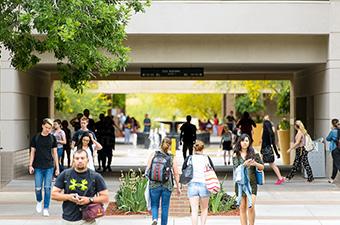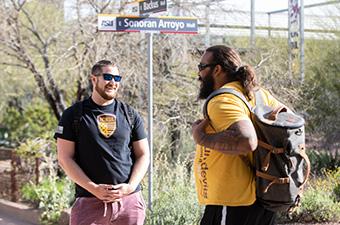Bystander Empowerment
You can do something
The presence of individual leadership and shared responsibility is the key to a thriving community. Our positive actions, big and small, can create a community where all individuals feel safe and supported. You might not change the outcome of every situation every time, but believe in your ability to positively impact the lives of your peers and your community at large. You can do something.
Just because you can do something, doesn’t mean it’s simple to step-in. In fact, part of our role as active bystanders is supporting our fellow community members who do step-in. This can include acknowledging how difficult it can be and working together to come up with a plan for how to offer support to a student in need. Together, we can do something.
Arizona State University is committed to creating environments in which all Sun Devils can thrive. Due to an ever-expanding engagement in virtual platforms, this commitment must include our online and virtual communities. Creating a space in which all Sun Devils can thrive means working together as empowered community members within our in-person and online communities to prevent sexual and relationship violence.
Visit the education page to browse additional educational topics.


